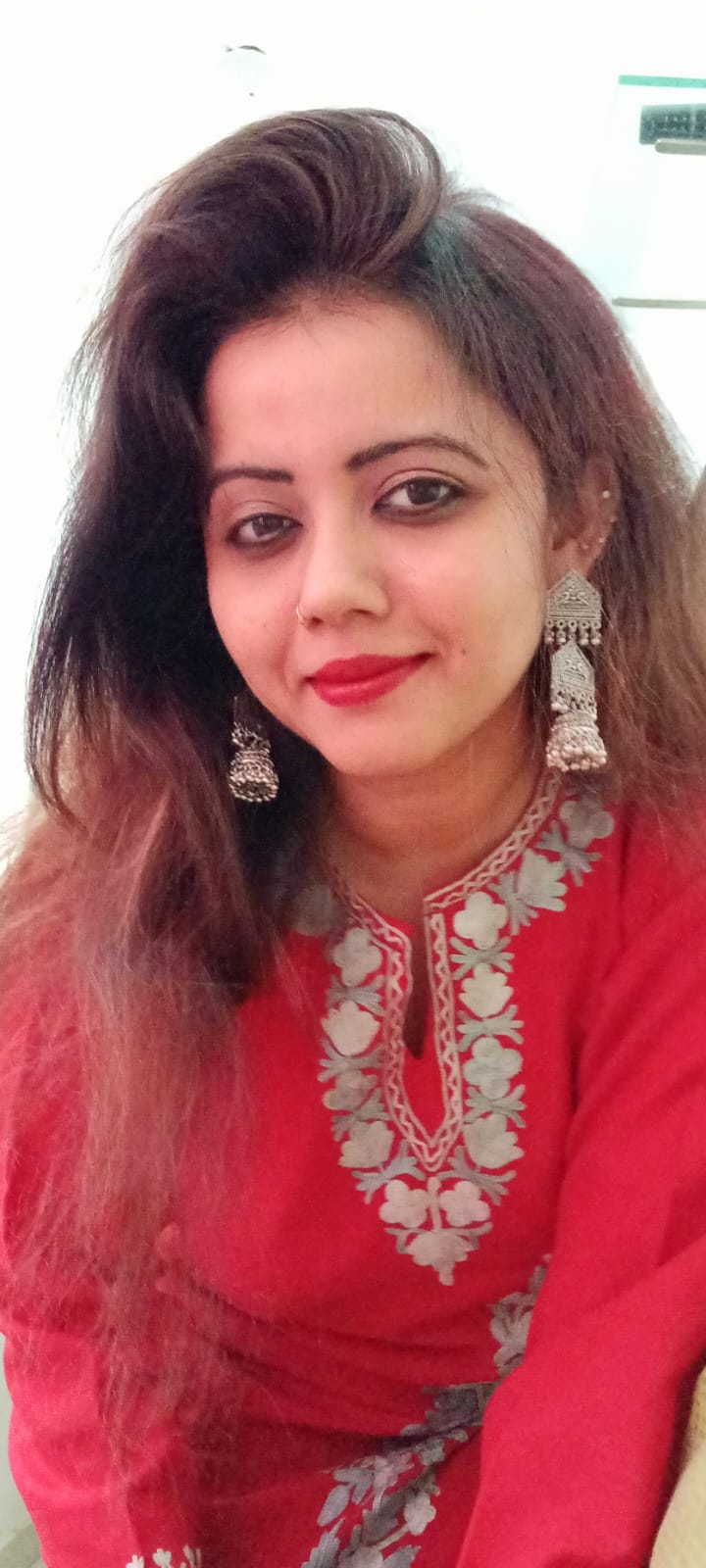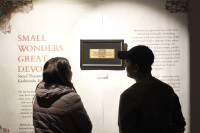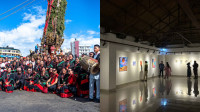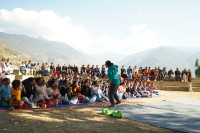Culture & Lifestyle
When a dystopian reality is uncomfortably familiar
In ‘What Strange Paradise’, Omar El Akkad prompts readers to reflect on the ethical complexities of humanitarianism and the pervasive Islamophobia in contemporary society.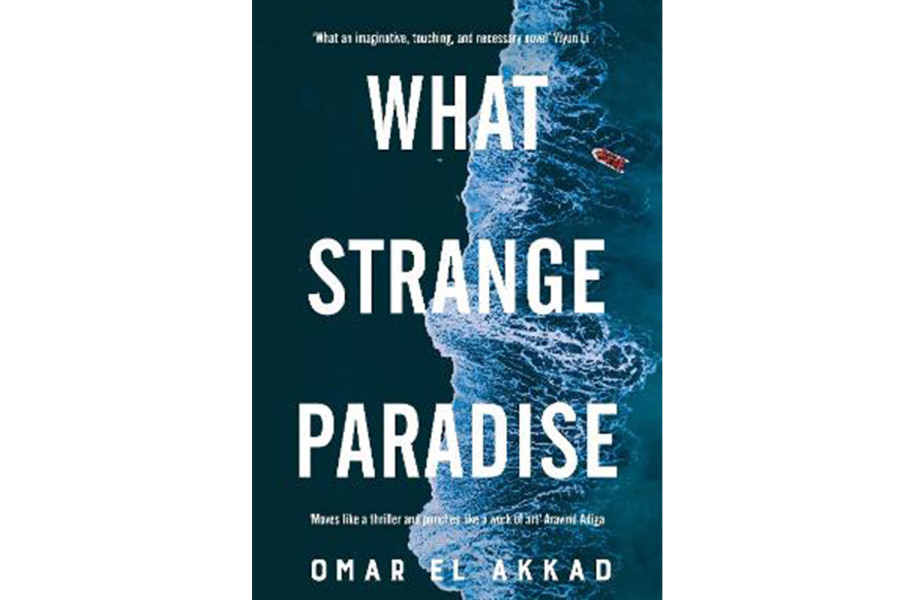
Fathima M
In 2015, the picture of Alan Kurdi went viral on social media and became a sensation of sorts. Alan was a Kurdish toddler whose parents were crossing the Mediterranean Sea to escape the tyranny in their country. Tragically, their journey ended in disaster. The widespread sharing of Alan’s image reflected a collective sense of sorrow and empathy for their plight. The outpour on social media showcased one thing for certain: god may or may not be dead in this century, but human conscience certainly is.
The photographer, Nilufer Demir, aimed to stir the conscience of those in positions of power, people who could make a difference, but they remained indifferent. From an ethical point of view, the picture was highly disturbing, but this is not to underestimate the efforts of the photographer. It’s more a question of creating a world that allows such tragedies to occur in the first place.
I was reminded of this while reading ‘What Strange Paradise’. It was impossible to overlook the similarities; the novel felt like a fictional representation of Demir’s photographs of the Kurdish boy. That is also the fate of thousands of Middle Easterners. Alan became the face of the children who died under such circumstances, just like Omar El Akkad’s novel is the fictional representation of an unending, sad saga of displacement and humiliation.
El Akkad’s novel fictionalises the brutal treatment and displacement of Middle Eastern refugees seeking safety in Europe. This has been going on for several years—since the invasion of the Middle East by America. The novel depicts the brutal truth that even after empires crumble, imperialism lives on. The West has the power to control the East, and this colonial dynamic continues even today.
The novel depicts the plight of a young boy, Amir Utu, who is the only survivor on a hostile island. The journey, intended to take Middle Eastern men and women to Europe, proved akin to a descent into hell itself. With scant food, safety measures, and overcrowded conditions, the promise of a better life sustained them, but the boat capsized, and everyone except for Amir died.
Such tragedies have been normalised in recent times, and the apathy of the West to these situations is nauseating, to say the least. Additionally burdened by their identity as Brown Muslims, refugees face a double onslaught of hardship and discrimination. The darkness of oppression prevails throughout the narrative, making it highly pessimistic and heartbreaking.
The novel leaves many questions unanswered, mainly because there are no definite answers to such heartbreaking experiences. The island has white people on it, and they have the power to determine the fate of people who come from war-torn countries—needless to mention that most of these wars are propagated by them in the first place. It’s an incredibly sad novel, and it makes us question the whole premise of charity and philanthropy, as well as the normalcy of hatred for a fellow human being.
Vanna Hermes comes to help, but she is hounded by others. The officer, although cruel beyond words, comes across as an informed person. He is aware of the power the Whites have and how Vanna’s sympathy is nothing but white privilege. He traumatises the young Amir further, embodying the callousness of the powerful white coloniser. He tells Amir:
“But you should know what you are,” he says. “You are the temporary object of their fraudulent outrage, their fraudulent grief. They will march the streets on your behalf, they will write to politicians on your behalf, they will cry on your behalf, but you are to them in the end nothing but a hook on which to hang the best possible image of themselves. Today you are the only boy in the world and tomorrow it will be as though you never existed”.
The novel examines the question of ethics itself. What kind of society questions the need for basic human rights and dignity? Refugee narratives often highlight the denial of basic humanity, exposing the hypocrisy of the powerful and privileged who offer philanthropy and charity as mere displays of their superiority. It’s always easier to help the vulnerable from a distance, and that’s philanthropy in our world.
Through the loneliness of Amir and the hostility displayed by the officer, El Akkad portrays a world deeply antagonistic towards certain individuals based on their race and religion. A Brown-Muslim-Arab boy, should he manage to flee from the tyrannies in his homeland, finds himself perpetually compelled to prove his worth as a ‘good Muslim’. Any crime committed by any Muslim in any part of the world will become every Muslim’s responsibility, and this vicious cycle of Islamophobia will continue.
It’s crucial to note that not all refugees are Muslim. People of colour endure humiliation, but Muslims, in particular, are doubly ostracised in the West. Despite all their claims on civilisation, the West is yet to rise above its biases based on race and religion.
The novel depicts a dystopian reality, one uncomfortably close to our own. As contradictory as it may sound, the real world and the dystopian world come together, and it’s hard to fathom which one is what. The rampant Islamophobia and the imperial presence of the West in the Middle East have made the lives of ordinary Muslims everywhere grim and agonising.
What Strange Paradise
Author: Omar El Akkad
Year: 2021
Publisher: Picador




 22.93°C Kathmandu
22.93°C Kathmandu